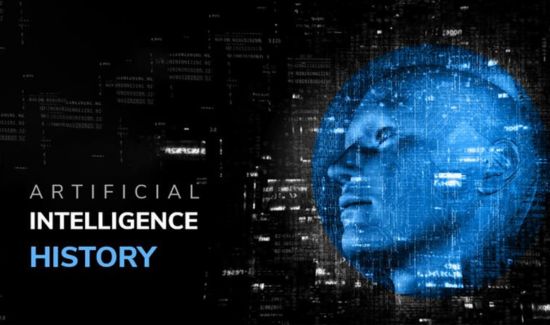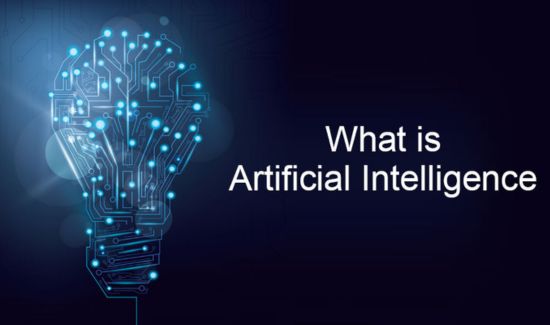Explaining artificial Intelligence in simple terms is difficult. As AI becomes part of our daily lives, knowing its principles is crucial. Computers with AI can perform human-like tasks. Siri, Alexa, self-driving cars, and tailored streaming suggestions use AI.
AI uses algorithms and machine learning to analyze massive data sets and forecast trends. Adapting and learning from experience makes it dynamic and versatile. AI has been developed for decades, but processor power and data availability have hastened its evolution. AI is used in healthcare, finance, and entertainment. AI might improve doctors’ diagnosis, give individualized financial advice, and change how we consume media.
This article will explore AI’s roots, types, applications, and future consequences. Join us to decipher AI and realise its promise.
Table of Contents
The concept of artificial intelligence
The concept of artificial intelligence (AI) revolves around creating machines that can mimic human intelligence, enabling them to perform tasks that typically require human cognitive abilities. These tasks include problem-solving, language comprehension, learning, and reasoning. AI aspires to create autonomous decision-making and problem-solving computer systems to automate industrial operations.
Machine learning, a form of AI that lets systems learn and improve without programming, underpins AI. Machines can discern patterns, predict, and adjust using algorithms and data. The ultimate goal is to create intelligent systems that excel in certain activities and can adapt and navigate varied settings, ushering in a new era of technological innovation and efficiency.
History and evolution of artificial intelligence

AI is rooted in human history. Early philosophers and scientists considered building intelligent machines. Significant advancements remained dormant until the mid-20th century, with researchers delving into the study of intelligent robots following the inception of the term “artificial intelligence” in 1956. Over time, AI research has seen optimism and disappointments. Computing power, data collection, and algorithm design have made AI possible.
The different types of artificial intelligence
Artificial intelligence can be classified into various types, each with its own set of capabilities and limitations. The three main AI kinds are:
1. Narrow AI, often called weak AI, performs specialized tasks in a constrained domain. Voice assistants, image recognition, and recommendation algorithms are examples. Narrow AI succeeds at specialized tasks but lacks human intelligence and understanding.
2. General AI: Machines with human-level intelligence can do any intellectual task. It’s still theoretical to reach this degree of AI. General AI would require machines to comprehend and apply knowledge across areas.
3. Superintelligence: An artificial intelligence level that is thought to be higher than human intelligence in all ways. This level of AI is widely discussed in science fiction and philosophy. While superintelligence is only a theory, academics and professionals are studying its effects.
Applications of artificial intelligence in everyday life
AI has permeated our daily lives without our awareness. AI is improving how we use technology, from voice assistants that manage our calendars and answer queries to personalized streaming suggestions. AI is being used to make hospital diagnoses, drug discoveries, and treatment plans better. Chatbots that are driven by AI are changing the way customer service is done by giving instant support and help. AI is being used in finance to find scams, evaluate risk, and give personalized financial advice. AI has a huge range of uses, and those uses are still growing in many fields.
Benefits and potential risks of artificial intelligence

AI’s widespread use has pros and cons. AI can boost productivity, decision-making, and complicated problem-solving. It can automate routine operations, freeing up staff for creative and strategic work. Concerns include employment displacement, privacy infringement, and ethical issues. Responsible AI system development and deployment are essential to reducing these risks and maximizing AI advantages.
How artificial intelligence is transforming industries
ALL fields are being changed by artificial intelligence. AI helps medical professionals in disease diagnosis, picture analysis, and therapy planning. AI is transforming finance, from automated trading algorithms to personalized financial advice. AI-powered entertainment recommendation systems are transforming how we consume media by giving personalized content based on our preferences. AI will change many parts of our lives with its boundless potential.
The future of artificial intelligence
As people think about the future of AI, they are both excited and cautious. Things will get smarter and more complicated as AI keeps getting better. A long-term goal is still to build general AI. Researchers are working on making machines that can learn, reason, and adapt in a variety of areas. Ethical concerns, safety measures, and rules will have a big impact on the future of AI, making sure that it is properly created and used for the good of all people.
Ethical considerations in artificial intelligence
Ethics become more essential as AI grows more embedded into human lives. Privacy, bias, accountability, and transparency are concerns. AI systems must preserve user privacy and sensitive data. Addressing AI prejudice is crucial because it can perpetuate social inequality. To develop trust and ethical behavior, AI systems must be accountable and transparent when making decisions that affect society.
Conclusion
There is a huge chance that artificial intelligence will change how we live, work, and use technology. AI is changing our world by making everyday jobs easier and even whole industries more efficient. At the same time, it is very important to think about duty and ethics when developing and using AI. We can make a world where AI improves our lives and gives us the power to reach new levels of innovation and progress if we accept its benefits and deal with its problems.
